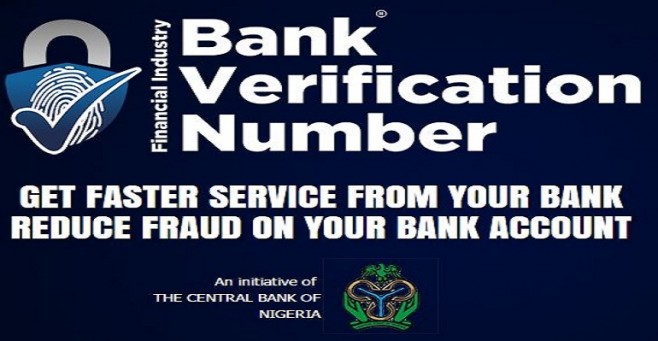
A Federal High Court in Abuja presided over by Justice Nnamdi Dimgba recently caused disquiet among banking stakeholders with its interim order for the forfeiture to the Federal Government of all monies in the bank accounts of all corporate/governmental institutions and individuals that are without Bank Verification Numbers (BVNs). The court further ruled that the order should take effect two weeks from the date it was given if the owners of such accounts fail to show cause why their monies should not be forfeited.
It also ordered the country’s 19 commercial banks to disclose the details of all such accounts in their custody, the balances in the accounts, their owners and their proceeds in affidavits of compliance deposed to by their Chief Compliance Officers, pending the determination of the substantive suit. The order, which was given on October 17, followed an application by the Attorney-General and Minister of Justice, Abubakar Malami (SAN), on behalf of the Federal Government.
This ruling has generated mixed reactions across the country. The banks are considering a class-action suit to stop the government from carrying out the order. Government has said that there were about 45 million accounts in the banking sector without BVN as at February this year. According to the Nigerian Interbank Settlement System (NIBSS), there were 97.57 million accounts in the banking system as at February, 2017, with only 51.72 million of them having BVN. The BVN was introduced in 2014 to ensure that all bank accounts have biometric identification of their owners.
There is a raging debate on the legality or otherwise of the planned forfeiture of funds in accounts without BVN. Has this government plan crossed the permissible line in the banking industry? Opinions are divided. Many have questioned its legality, saying the action, if implemented, will discourage financial inclusion that the nation is in dire need of. The seizure of these funds may also affect financial system stability.
Another question that may arise is what would happen in a situation where the account holder has died and the matter is in administration, or when the money in an account is a subject of litigation? In such circumstance, what will the bank do? Will it surrender a customer’s deposit and face litigation? Again, what happens to Nigerians in Diaspora who have accounts domiciled in the country but are yet to get their BVNs? These are questions that need answers, not the uncertainties that the ordered forfeiture may throw up. Clearly, the government’s plan to take over the monies in these accounts has not been well thought through. It was, perhaps, rushed through to ambush the funds in certain bank accounts that have not been linked to the BVN scheme.
Government should tread cautiously on this order to avoid court actions that may defeat its expected benefit of ridding the banking industry of money laundering and other untoward practices. There is also the fear that if implemented, the forfeiture could lead to a liquidity squeeze in the country, even if it improves the culture of honesty and transparency. The economy may also shrink again. The government should, therefore, carefully weigh these possibilities.
What the government should do now is to, through the CBN, develop policies that will encourage, rather than discourage, financial inclusion. No doubt, there are still challenges in the implementation of the BVN scheme which ought to have been corrected by now before resorting to the courts to confiscate monies without BVNs.
We are not unmindful of the fact that the Federal Government is desperately looking for ways to broaden its revenue generation. But, this should not be at the detriment of the citizens’ constitutional rights. We side with lawyers who have argued that deploying interim orders for permanent purposes such as forfeiture of individual or corporate assets does not bode well for the people.
We have also not found anything in Section 3 of the Money Laundering (Prohibition) Act 2011 that makes BVN a condition precedent for operating a bank account in Nigeria. BVN, it must be said, is a policy decision of the CBN. As such, it may not be expedient for a court of law to base its orders on executive policies that are not backed by law. We do not, however, support any attempt to use the banks as conduits to perpetrate fraud as some individuals or groups might be doing. But, the government should not regard all bank accounts without BVNs as avenues for fraud and money laundering without any verifiable evidence. The appropriate thing to do at this point is for the CBN to give all account holders without BVN ample time to comply with the apex bank’s directive. Enforcing the order of forfeiture without an Act of the National Assembly will amount to illegality and a gross breach of the constitutional rights of the citizens or organisations involved.
Government should be careful on this matter because expropriating the money of citizens can create a wrong impression, especially in an emerging market like Nigeria. The best way forward is for the government to restrict access to non-BVN accounts, if it strongly suspects that they are being used for money laundering and other illegal activities. It should not seize the funds in the accounts.
END

Be the first to comment